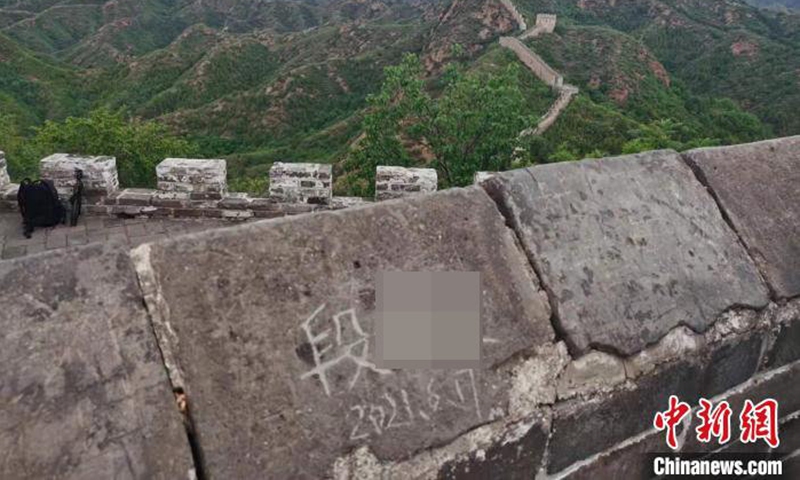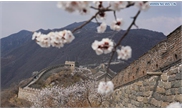
Photo: Sina Weibo
Two Chinese tourists were punished for scrawling on the Great Wall in North China's Hebei Province, including one who was subjected to a 10-day administrative detention.
The two tourists surnamed Nie and Zhao visited the Jinshanling Great Wall in Luanping county, Hebei on June 17.
During their visit, Nie carved her parents' names and the date into the Great Wall with a stone, while her male companion, Zhao, helped her to deepen the scrawls with the keys he carried.
Their scrawls were discovered by the Great Wall protection staffers the next day and the local police soon tracked down the offenders whose behaviors constituted an offence of carving or damaging cultural relics.
Nie was fined 200 yuan ($30.89) and Zhao was given a 10-day detention period as well as a fine of 500 yuan.
Many internet users on China's Twitter-like Sina Weibo thought the offenders deserved much harsher punishments.
A staffer surnamed Lin from the management department of Jinshanling Great Wall scenic spot told the Global Times on Thursday that they also thought the punishments were too light since the damage to the historic relic was irreversible. However, the punishments were decided by the local police authority according to current laws and regulations.
According to Guo Zhongxing, director of the management department, the punishments were the most severe that the department had ever given according to related laws and regulations, including the Hebei Province Regulations on the Protection of the Great Wall enacted on June 1, the Law of the People's Republic of China on the Protection of Cultural Relics and the Law of the People's Republic of China on Penalties for Administration of Public Security, China News Service reported.
Lin said that the management department will strengthen publicity efforts on the protection on the Great Wall in their future work to avoid such cases from happening again.

